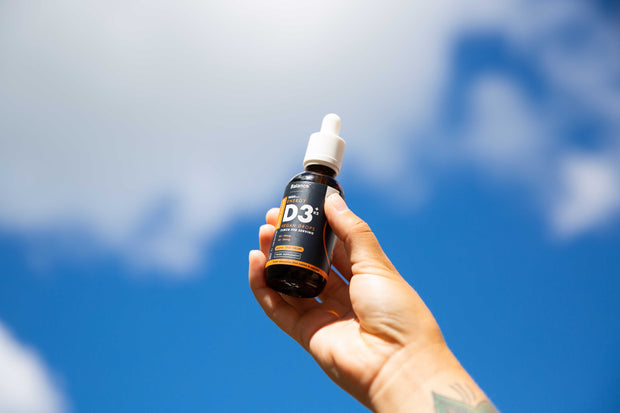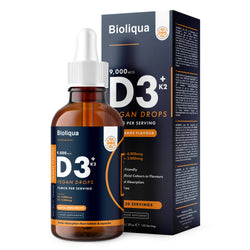Order by 2pm for same day dispatch
Clear all
Vitamin D
Take your daily dose of vitamin d and boost your vit d levels. Vitamin D helps the body absorb calcium from food, making bones and teeth strong and healthy. It also regulates blood clotting and keeps muscles working properly.

CORE NUTRITIONImmunity Vitamin D3 Spray

Little PharmaChildren's Vitamin D Spray | 60ml
Vitamin D FAQs
The best way to ensure you are getting enough vitamin D is by exposing yourself to sunlight for 10-15 minutes a day. This will help your skin produce its own natural form of vitamin D – known as 7D2. Lacking vitamin d is totally normal, especially around winter. We can help our body get the right amount of vitamin D without the sun’s rays by taking supplements.
The general recommendation is to take a vitamin D supplement for at least 6 months. However, some experts suggest that you continue taking a vitamin D supplement indefinitely.
The recommended daily allowance (RDA) for adults in the UK is 10mcg per day. This should be taken as a supplement. If you are taking a multivitamin then this will cover most of your needs. However, if you have a specific health condition that requires additional supplementation, talk to your GP.
D3 has been shown to be more effective in increasing serum 25(OH)D concentrations than D2 but there isn't enough evidence to say whether one form is better than another.
There are no known adverse effects associated with vitamin D supplementation. Some people may experience mild stomach upset when they first start taking it. You should consult your GP before starting a new supplement regime.
You might not realise it, but certain foods contain vitamin D naturally. Eggs, oily fish like salmon and mackerel, mushrooms and fortified milk products such as soya drinks are just some examples.
While vitamin D is safe and well tolerated by many people, some individuals may still develop symptoms of hypervitaminosis D. These include nausea, vomiting, muscle weakness, headache, confusion, seizures and even death. Talk to your GP if you notice these symptoms.
It's strongly recommended that you take a vitamin D supplement during the winter. Why? Because the vast majority of our daily vitamin D comes from the sun. And during the winter in the UK, the sunlight often isn't strong enough to give us enough vitamin D. (Plus, we probably spend less time outdoors when it's cold and yuck.)
Vitamin D tips and advice

How to boost your Vitamin D levels all year round
Posted: 23 Jun, 2022

